There just might come a day when former-Ald. Dick Simpson’s “Rogues, Rebels, and Rubber Stamps” reads more like fiction than a historical account of the Chicago City Council’s dark history.
Aldermen took another step in December to distance themselves from the council’s infamous history of backroom deals where self-interest thrives and city residents suffer. They voted overwhelmingly for an ordinance, SO2019-8541, that makes it illegal for aldermen to lobby other governments and that stops state lawmakers from lobbying city officials. CHANGE Illinois testified in support of the much-needed legislation.
Who ever would have thought the Chicago City Council would take an active role in addressing unethical behavior by lawmakers? And yet, it’s true that the city is, far and away, leading the state on approving ethics and transparency reforms over the past six months.
In addition to improving lobbying and lobbying disclosure rules, aldermen have voted to make the Council Office of Financial Analysis truly independent and transparent, and to livestream their committee hearings. The ban on elected officials lobbying other governments continues to signal a change in the culture and political will at City Hall. Contrary to what we have experienced in past years, there was no watered-down compromise or split vote on the lobbying restrictions. While objections were made in committee, they were not enough for aldermen to vote against the measure or even take the time to debate them on the floor.
And the city council acted in spite of stalling by state lawmakers after the recent arrest of former state Representative Luis Arroyo on bribery charges and other questionable behavior by state officials. Arroyo got into trouble for reportedly offering cash to an unnamed senator in order to help one of his Chicago lobbying clients.
State lawmakers’ response to Arroyo’s indictment, primarily, has been to create an ethics commission to review state ethics laws and issue a report by March 31, 2020. However, members of the city council decided immediate action was warranted in light of the ongoing federal investigation that has had ramifications for all levels of government in Illinois. Alderman Matt O’Shea’s warning to colleagues on the council’s Committee on Ethics and Government Oversight Committee that “this BS is over with” strikes a clear contrast to the go-slow approach by state lawmakers.
While the state commission will spend the next four months “thoroughly vetting” state ethics laws to ensure that unintended consequences will not come from their recommendations, the city council will see how its ban plays out in a practical sense. And whatever concerns state lawmakers have can be dispelled as we all see that the sky isn’t falling because lawmakers no longer can change, on a whim, whether they are lobbying on behalf of a client’s interests or acting on behalf of their constituents.
Wouldn’t it be wonderful if, in this instance and others, Springfield acted on Chicago’s lead? I encourage aldermen to keep raising the bar and standards for ethical behavior. The naysayers no longer will have excuses to use for their inaction. Now, we can prove that strong ethics laws will not have an adverse effect and, in fact, will create a more welcoming, open and even-handed political arena in which the people can participate.
